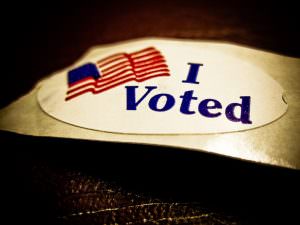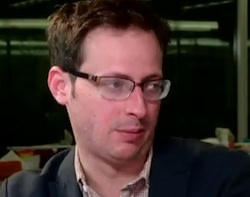Debating Social Security: If Not Now, When?
If we can't have a debate about Social Security before we make a presidential choice, at what point can we ever have such a debate in a way that honors our democratic ideals?Many centuries ago, the Jewish scholar Hillel posed a question that is as prescient as any Nostradamus prophecy: “If not now,” he asked, “when?” It’s a rhetorical query many of us contemplate during the high holy days, which concluded last month. And after a revealing comment by President Obama’s top political aide, it’s a question that now haunts Social Security.
The remark in question came during last week’s debate about fiscal issues on MSNBC’s “Morning Joe.” In an otherwise forgettable conversation, things became newsworthy when the conversation turned to Obama’s position on Social Security reforms. At that point, the president’s consigliere, David Axelrod, responded not with a clear position, but instead by trying to halt the conversation.
“I’ll tell you what, when you get elected to the United States Senate and sit at that table, we’ll have that discussion,” he told the panel.
When pressed, Axelrod insisted that the election season meant no debate should proceed. “This is not the time, he said. “We’re not going to have that discussion right now.”
There are two disturbing problems with Axelrod’s statements. First and foremost is his suggestion that a Social Security policy debate should only be conducted between White House officials and U.S. senators — not between all government officials and the general public. It’s a fundamentally elitist idea that evokes notions of smoky back rooms and secret deals. Not only that, it both contradicts basic notions of civic engagement and confirms Americans’ fears about a government that wholly disregards the citizenry.
Along the same lines is Axelrod’s insistence that even if we were to have a public debate about Social Security, we somehow shouldn’t “have that discussion right now” because of the impending election.
While it is certainly true that a presidential contest tends to focus on silly frivolities (say, Paul Ryan’s workout schedule or Joe Biden’s photo with motorcyclists), and while it is undeniable that an election season tends to bring out the craziness in everyone, it is also true that those unfortunate realities are no justification to divorce the entire campaign from serious issues. Elections, after all, aren’t supposed to only be vapid exercises in bad reality TV. They are also supposed to be exercises in democratic participation, which means they are supposed to present We the People with a substantive policy discourse — one that helps us all cast informed votes.
This is a particularly important principle when it comes to Social Security — a program about which the Obama administration has been sending mixed signals.
The most recent signals, of course, came from the president himself, who has insisted that “what I’m not going to do, as a matter of principle, is to slash benefits or privatize Social Security.”
Yet, during the first presidential debate in Denver, he nonetheless called for the program to be “tweaked” — a troubling reminder that last July, the Washington Post and CBS News ran stories headlined “In debt talks, Obama offers Social Security cuts” and “Obama proposes cuts to Social Security,” respectively, with both quoting unnamed. Democratic officials leaking the prospect of big reductions in promised benefits. Likewise, at the Democratic National Convention this year, Vice President Biden criticized Republicans for not embracing the Social Security cuts championed by the Bowles-Simpson commission. Meanwhile, as some Democratic legislators have pushed to enact Obama’s own 2008 campaign proposal to raise the Social Security payroll tax cap, the White House has been noticeably absent in voicing its support for such legislation.
In light of these equivocations, the key questions should be ringing in every voter’s ear. If we can’t have a debate about Social Security before we make a presidential choice, at what point can we ever have such a debate in a way that honors our democratic ideals? In Hillel’s own words, if not now, when?
David Sirota is a best-selling author of the new book “Back to Our Future: How the 1980s Explain the World We Live In Now.” He co-hosts “The Rundown” on AM630 KHOW in Colorado. E-mail him at [email protected], follow him on Twitter @davidsirota or visit his website at www.davidsirota.com.
© 2012 CREATORS.COM
Your support matters…Independent journalism is under threat and overshadowed by heavily funded mainstream media.
You can help level the playing field. Become a member.
Your tax-deductible contribution keeps us digging beneath the headlines to give you thought-provoking, investigative reporting and analysis that unearths what's really happening- without compromise.
Give today to support our courageous, independent journalists.






You need to be a supporter to comment.
There are currently no responses to this article.
Be the first to respond.